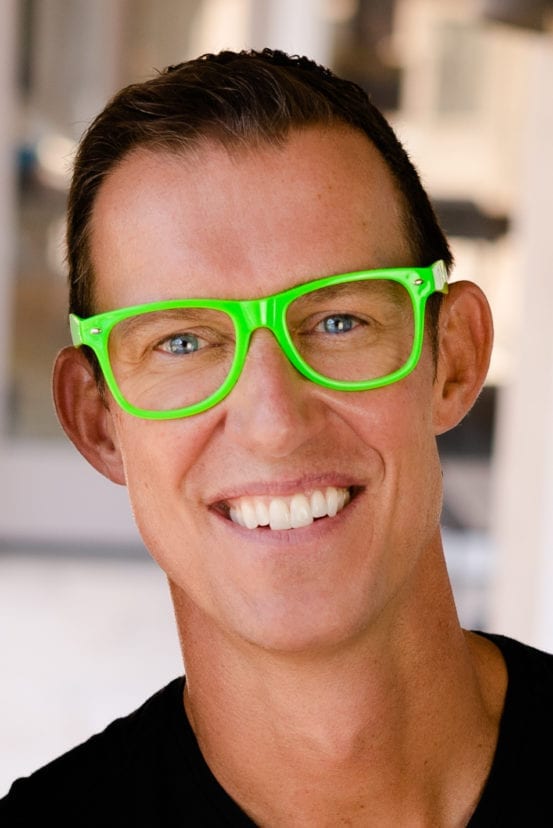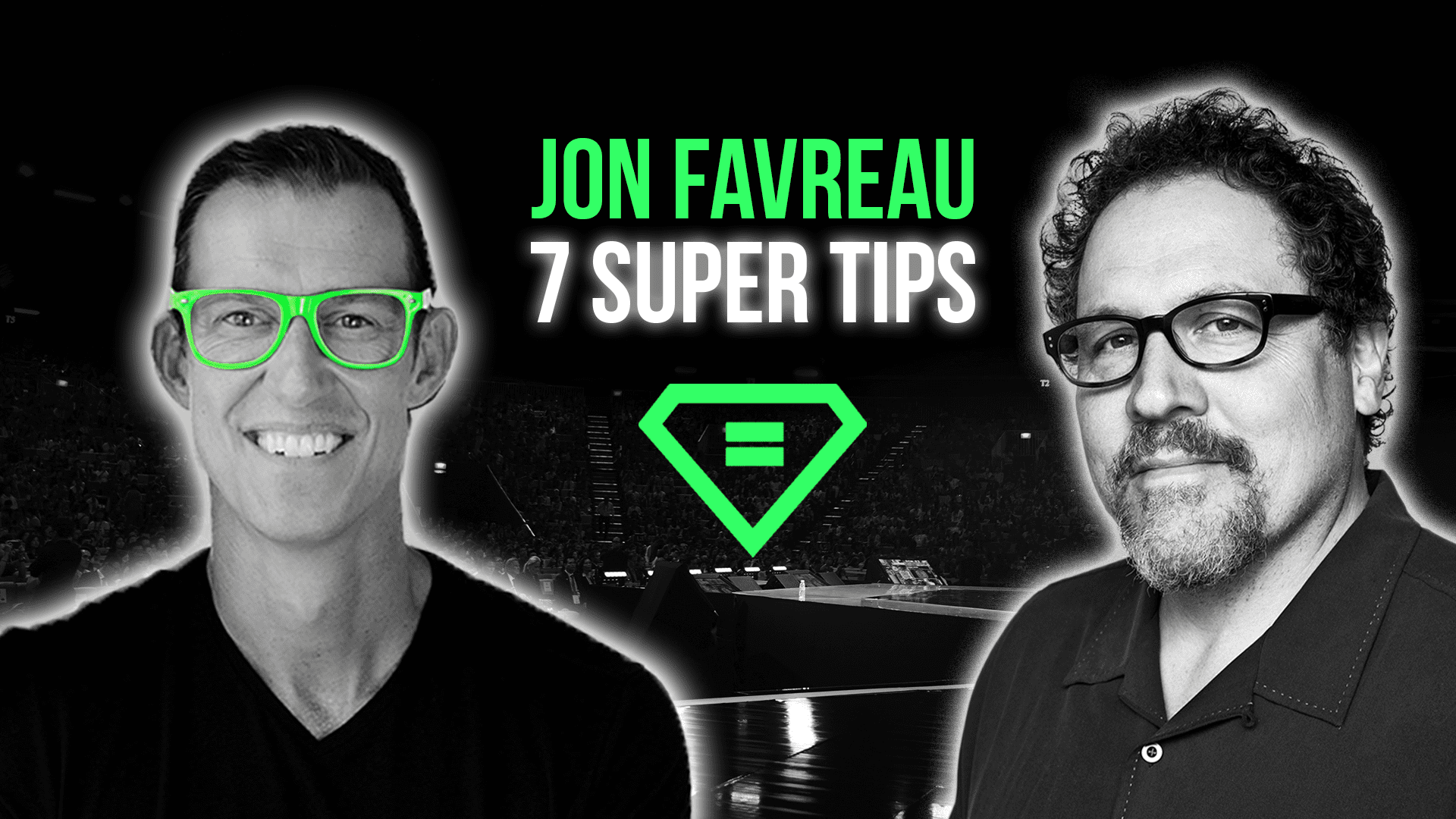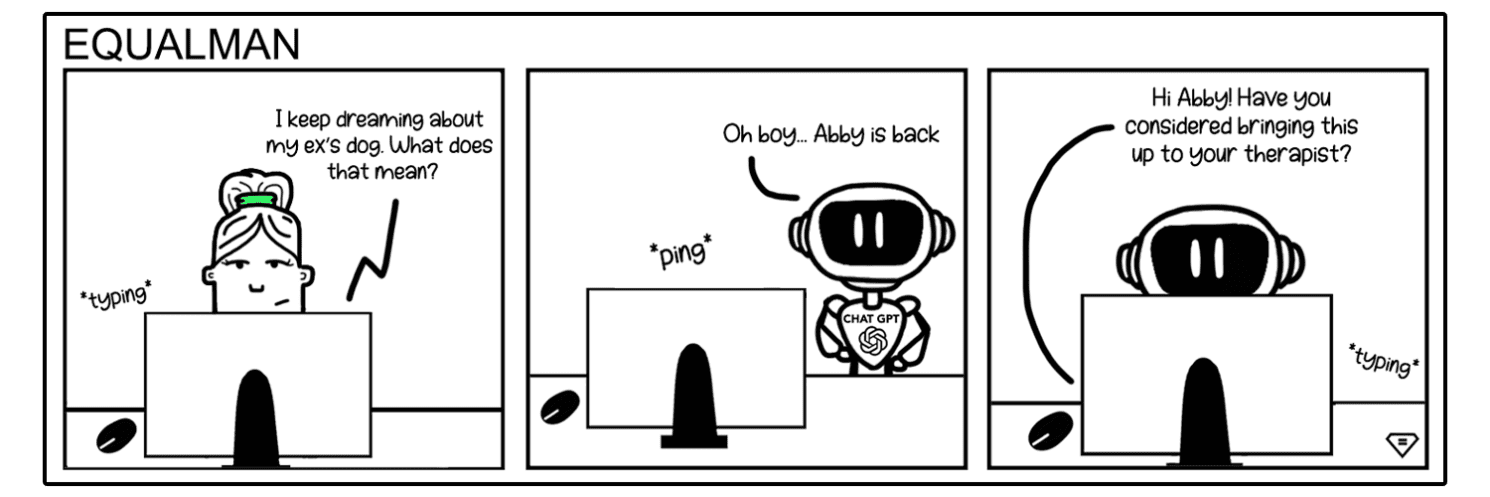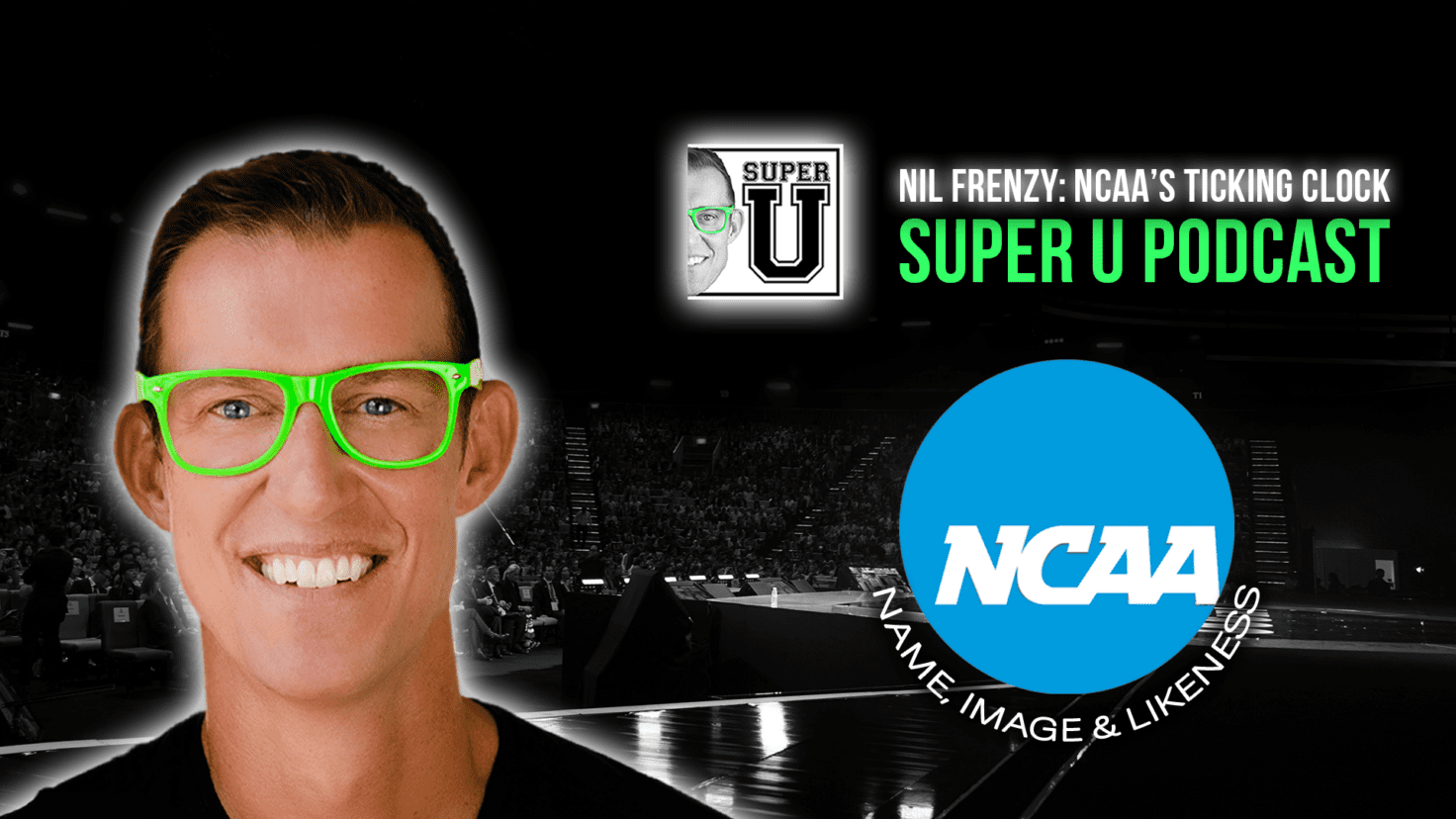Super U Podcast | Jon Favreau
On this episode of the Super U Podcast, Jon Favreau is a screenwriter, director, actor, producer, and aspiring chef. He broke into the industry after writing and starring in the 1996 comedy-drama, Swingers. He directed, produced, and starred in Marvel’s Iron Man series as Happy Hogan. Recently, Favreau created the Star Wars Disney+ original series The Mandalorian. In this episode of the Super U Podcast, Favreau talks about his early career, directing style, and his take on modern technology. Click here to subscribe to the Super U Podcast. Need a sneak peek? Below are the main takeaways from the episode.
Super U Podcast | 7 Super Tips with Jon Favreau:
[4:21] Play to Your Strengths
“I’d say I learned more as a director from being an actor than vice versa. I’ve had the good fortune of being able to apprentice. I’m sort of a de facto apprentice on these movies. I’m an actor because I get this follow the watch the director, follow him around, ask him questions, ask all the department heads questions on the set. And that was my learning. That was my film school. I got to watch directors direct. And then I tried to emulate the ones that I respect. Most directors don’t have that experience. You come out of film school, or you write a script or you can get your pull money together and you’re on a set for the first time you’re on a set. You’re the boss. That’s a weird way to learn how to do something. And so being on other people’s sets, and watch In the flow of work and watching how they handle people, gave me a tremendous leg up on other people who have other first-time directors who had never had that experience.”
[6:00] Be Willing to Take Risks
“You know… you wouldn’t expect his face on a happy meal, you know, at the time it was [just] find somebody. The mask was the star, find somebody unknown, you’ll make the star right and let’s go with somebody young somebody cheap. And there was, something enthusiastic and with Robert, he was cheap and enthusiastic, but super talented. And Tony Stark, you know, is the one guy where you can actually cast somebody our age and tell a story about a person that’s not in high school, but somebody who’s lived a life and had problems and his outside ability… but it was let’s ground this as much as we couldn’t. And I think it opened it up to a big audience that wasn’t necessarily just comic book fans, people’s parents are going to see it. And when Robert came on board, all of a sudden, it became easy to get Jeff Bridges Gwyneth Paltrow really, Terrence Howard. So it opened up a whole it looks like an indie, you know, we come out of that world. Yes, right. You know, we’re both kind of Comic-Con guys like we would have done back in the 90s. And there was no reason not to, I started an opportunity, let’s cast it with the people that net couldn’t necessarily get anything greenlit but an indie film, and then you got that great resource to work with.”
[8:25] Big Breaks Come When You Don’t Expect Them
“Well, I was an actor. I was in a film, Rudy, I don’t know if you remember I did a film by Notre Dame, right. And it was my big break. You know, I was living in Chicago at the time, I had moved there to study improv, and got cast from an audition in this role. And it was just I mean, my family, my friends all felt that now I had arrived. I mean, I was a movie star. I mean, my name was the beginning of the film of the front credit in a movie is like, you know, a dream come true. And plus, I was very proud of the film. I was very proud of my performance. I had gotten the critics like me, the agents in town, everybody, I was attached to the town for you know for like 15 minutes, and I moved out there. And I just didn’t work. I just didn’t work. I dropped about 75 pounds. The town didn’t know what to do with me. And I spent a lot of time with these out-of-work-after friends that also had gotten their big breaks but also weren’t working. And so we just kicked around town and I decided to try my hand at writing. And I just sat down at my computer not thinking anybody would read it. And certainly, I didn’t think anybody would make it. And I wrote the script Swingers in about two weeks.”
[9:56] “Be Firm In Your Destination, But Flexible In Your Path.”
“It’s all a matter of adjusting to what the environment is at any given moment and adjusting. In the art of war kind of way, I don’t think about it in those terms but acknowledge what the terrain is. And I think a lot of what seems like in my career in general, as though, I’ve had this vision for how my career was going to change and things I would try to do and, and to get things accomplished was more a reaction to what the circumstances were. So, for example, I thought Swingers would open a lot of doors for me acting-wise, it didn’t. I got to do a little bit of stuff here and there, it was fun. But I was very sought after as a writer after that. And so the “writer door” opened up the “actor door” was kind of more of a small, little cracked open door that occasionally I could poke my nose through, but it wasn’t receiving me but the, but the writer door was wide open. So I started to do that. And I learned a lot about storytelling and interacting with executives and what the system was by being involved with projects, and none of which they ever got actually produced with the versions that I wrote. But I was part of a chain of writers on certain projects. So I would, I was pretty good at adjusting to what path was available to me, and finding something interesting about what was available. But without ever feeling I was compromising, but just trying to check out something that could be cool. And not getting in my own way of saying, “Why shouldn’t I be a writer on this? Why not pitch this take on a movie even though I’ve never done a rewrite, why why not go in there and talk to them about this? And, and so I’ve had, I think I’ve had enough confidence to not be scared to try something new, which I think is something I get in a lot of people’s ways. I think people get in their own way a lot.”
[13:10] Tell Your Story
“I think it’s a disposition. I think it’s the disposition of finding what the scene is about. And so much of my job as a director is really just dialing in the actors as to what either we just did before, or what’s in the script. And we talked about what that scene was going to probably be like, and what scene is next and giving them a context of where it falls within the arc of the story. Or sometimes conspiratorially saying, Listen, this is what happened this other scene, I know you’re only in this scene, but I’m going to need you to change the energy here as a rhythm thing. So what I need from you as a storyteller is “this.” And as soon as they understand what the goal is, they may have a difference of opinion. But at least there’s a conversation going on. And oftentimes I’m not sure about exactly what everything should be. And so if there’s a different idea that’s strong, I’ll do both. And really try to do my best version of both, and then in the editing room, look at how it’s all going to fit together… But I can look at an actor’s eyes and draw insight from their thoughtfulness. Or I will have watched Gwyneth and Robert having an argument during a rehearsal and then we’ll have written in the argument that they had not as the characters but as the people and then use it as their characters. And then they hook into it. They know I’m watching and listening and it hooks them into that energy.”
[15:07] Technology Has Opened the World
“With an experience like this, you’re seeing the story we’re trying to tell you, we’re trying to make you feel a certain way. You’re seeing the people who spent all the weeks and hours coding, getting his behavior just right, the character design, the lighting, all of those things. This is a whole group of people who work for a year just to get this little experience going. And they’re curating an experience for you. And so you’re really connecting with the storyteller, like within a movie. And I think that the whole humanity versus technology thing, you start to see that there’s an opportunity here to create greater connectivity, because the kids are walking around on those phones, they’re not looking at the phones, they’re talking to their friends, in real-time. I used to go to summer camp, you get a pen pal, you write them one or two letters. My kids are talking all the time to the kids they met in summer camp, and all the friends that they meet at the parties and people at school. So really, when they walk around just ignoring you, not people. And as we get used to this phenomenon, we start to see that technology offers opportunities. Yeah, there, you know, we should be vigilant, and they’re very, a lot of smart people who are warning about what could happen with AI and I don’t mean to discount that. And we do have to pay close attention to that. But I think, to be scared of technology in general and be a Luddite, and not to embrace these opportunities that might actually make us more human and more connected. Because when you think of humanity versus technology, you got to think of the root of the word versus which is the Latin for to turn towards something, to face something. So as humanity facing technology, and taking on that challenge and the storytellers out there to imbue what we’re doing with technology with even more humanity because it might lead to greater interconnectivity, greater empathy, and greater community.”
[18:43] Trust Your Gut
“And when you go through a studio development process, it’s, very easy to lose track of that. It becomes a big committee, it becomes a lot of people. If you really speak from the heart and do something really wonderful and sincere, I think it’s refreshing in the marketplace. And if you could, it’s nice to carry that sensibility into the big movies. And I think when we made Iron Man, just the cast that we put together and the tone of that film was the same tone, I would use an independent film and the same type of comedy, I would use the same type of casting. And the tone of Iron Man ended up being something that although off-beat was successful, and now there’s a whole Marvel Universe that’s consistent with what we did on the first film. So I guess the lesson I take away is, don’t lose your sense of instinct. Don’t lose your gut sense of what plays and what doesn’t and don’t rely on statistical analysis or a big machine to compile data to help inform your creative process.”
Connect with Jon Favreau:
Instagram: @jonfavreau
Twitter: @jon_favreau

To ensure you don’t miss future episodes, subscribe to our podcast by clicking here >> Super U Podcast. We hope these tips help unlock and unleash your inner superpower!
The Super U Podcast is hosted by #1 bestselling author and Motivational Speaker Erik Qualman.





